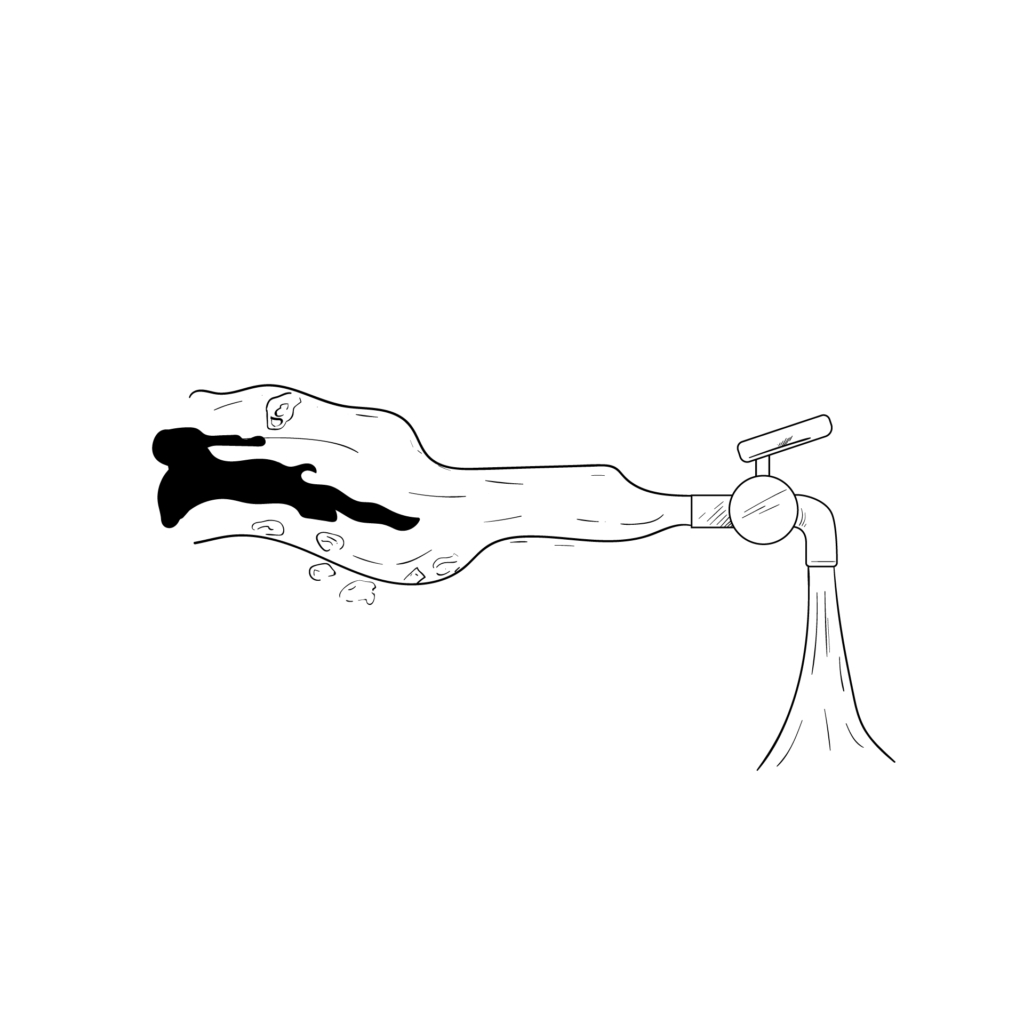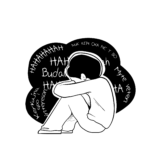PROTECTING NATURE IS OUR RESPONSIBILITY
Water pollution continues to be a more progressively serious problem each day because most of the rivers are also misused as an opportunity of spillage for wastewater and other waste which not only have an impact on the ecological extinction of living beings in the river but they also risk human health/ by being a source of infection and spreading of different epidemics.
Illustration: Argjira Kukaj

Kosovo is a place with a small area, but is characterized by valuable underground and ground resources, a rich biodiversity, a lot of woods, rivers, lakes and minerals. All of these natural resources are unfortunately being wildly mistreated, starting from illegal deforestation, use of river gravel that has an impact on changing the riverbed and impacts the ecosystem’s imbalance, throwing rubbish in public spaces.
Kosovo faces very serious problems from the lack of will and the passivity to react to such actions, so quick steps must be taken to stop this occurrence, with corrective actions to protect environmental quality.
In the moment we take the first step toward open environments, we face pollution. Pollution is the degradation of an ecosystem by entry of substance or radiation that change a lot or less of this ecosystem’s functioning that is presented in different categories, such as air, water, environment pollution and sound pollution.
Water pollution continues to be a more progressively serious problem each day because most of the rivers are also misused as an opportunity of spillage for wastewater and other waste which not only have an impact on the ecological extinction of living beings in the river but they also risk human health/ by being a source of infection and spreading of different epidemics.
River pollution as a negative occurrence must be raised awareness for in every form, so that we can together prevent their degradation.
My focus in this writing is to present this occurrence from the perspective and space which I am confronted with every day.
I’m from the city of Gjakova, a city which is rich with 3 rivers and one artificial lake and each one of them possesses its own characteristics. Once known for their purity, beauty and fishing attraction, Gjakova’s rivers have been transformed in the largest recycler of sewage waste and rubbish. More characteristic and painful is the river Krena, which streams in the middle of the city and splits it in two parts. Rubbish is constantly thrown in the river, something that has transformed the river in a sewage storage, which results in a pungent odor. This problem becomes even more serious considering that in some parts there are a lot of families that live by the river and garbage disposal results in environment pollution, a thing that makes water contamination and spreading of different contagious diseases much easier. This concern of the citizens is reflected also with the initiation of a UNDP study, where it is seen that Gjakova citizens are generally less pleased than the Kosovo average in the aspect of waste collection and management.
The river Llukac is located in the peripheral side of the city. This area, the neighborhood “kolonia”, is a poor community and shortage of elementary living conditions has had an impact in this area to be one of the most endangered areas in the health aspect. Being near the city landfill it has also been transformed into a waste landfill.
The river Erenik is located in the southwestern side of the city. This river is totally degraded for excavation in a large scale and with this phenomenon the riverbed has also unfortunately deviated. It is exactly because of this alarming state that it has been published in the prestigious National Geographic magazine, and as a result during the summer season a volunteer initiative has taken place for cleaning the Erenik river, in which volunteer participation from other Kosovo cities was quite large.
Us youth are conscious that we have a big responsibility in front of us for the present and future of our country seeing as we have in front of us such valuable resources and an enormous degradation for which we must take responsibility in protecting it, fighting degradation and to make an effort to find ways and mechanisms so that existing laws are applicable, to raise awareness in people especially in areas where degradation is more accentuated and to educate future generations. Nature belongs to all of us and all of us share a responsibility in protecting health and nature.
About the author: Nesa Kryeziu is a 17 year old girl from Gjakova who is attending high school.
This activity is supported by Engagement for Equity Program – E4E, financed by United States Agency for International Development – USAID, and implemented by Advocacy Training and
Resource Center –ATRC

